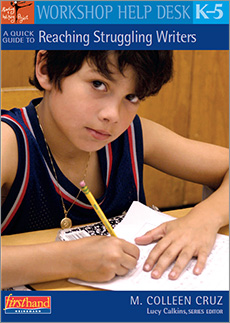You may have recently come to this point in your teaching this year and need a shoulder to lean on in your teaching and planning. First, let me tell you this. You are not alone in your concern for these students. And, allow me to share in this post a few things that have helped me in BIG ways.
First, I think we all need to take a deep breath and give ourselves and these students some compassion.
Yes, I know readers, that may sound a little fluffy to those of you who read my posts and hear "rigor, rigor, rigor" in my voice. But, when I say that it is important to feel compassion for ourselves as teachers and for our students, I am NOT saying that we should lower expectations or give kids a way to opt out of challenges. In fact, I am saying the opposite. We can be compassionate by digging in deeper to our work, recognizing what works and what does not, and improving our work and the student's work at the same time.
We can show this compassion when we recognize all we have done thus far, both ourselves and our students, to work toward achieving the benchmarks. And, we can use all we have done thus far to help us plot a further course.
You can reflect on a few things in your search for this compassion.
- How can I continue to be compassionate in the words I use to the whole class and to my striving writers?
- How can I continue to be compassionate in the physical environment I create in the classroom?
- How can I continue to be compassionate in the in the social and work bonds I support in the classroom? (i.e. partnerships and clubs both formal and informal)
Here are just a few of the things in each area that we can try as we search and reflect together:
Compassion in our words:
- Write down the times of the day when the student feels successful. Remind the student what it feels like to be successful. Point out that they are smiling during these times.
- Write down exactly what the writer is "striving" to do next and tell them what you see without judgement. I like to say this rather than what the writer is struggling to do. Semantics, I know, but to me it shifts something in my mind. It changes the way I approach a writer. When I talk to young kids I often say, "I notice you are working hard to ___" or "You've been working on this part now for about __ minutes."
- Make a list of the times in the day we meet with the student. Perhaps one time of the day works better than another.
- Make a list of the kinds of conferences and small groups we have taught. Perhaps we need to continue some of the things we have already tried. Often one conference doesn't do the trick. You may need to repeat the same teaching point. Whenever a fellow teacher is feeling down and out and says, "I already tried that. Didn't work," after I offer a suggestion, I sometimes reply, "Keep doing it. It may take time and repetition."
- Make a list of the things the writer can do now that was not evident in his/her writing or habits 6 months ago. Share these with families at conferences along side of the reality of the benchmarks the writer is striving to meet. It is important to see growth as well as the next steps.
Compassion in the physical environment:
- Make the paper choice the writer needs available in the writing center and have honest conversations about the paper choice you believe the writer is ready for at the moment. Make sure you are not holding the writer back, always providing one or two lines more per page than what the writer can currently do.
- Invite the writer to co-create a work space that will inspire writing. If it means the writer chooses a private space, talk with the child about the positives of a private space and make sure the child notices the positive results (more writing volume, for example) that comes out of the private space.
Compassion in the social bonds we create:
- Make a list of the other students the writer sees as mentors in the classroom. Perhaps you can seat the writer near those students or give some partner time to the students so the striving writer has time in the middle of the workshop to show his/her writing to the partner for feedback. For more support on setting up partnerships and supporting students in them, see some sample minilessons in the Units of Study Series. I like the partner time minilesson in Session XII in the Revision Unit as well as the partner time minilesson in Session III of the Small Moments Unit.
If you are searching for more to help your struggling writers, you will want to get Colleen Cruz's beautiful book, Reaching Struggling Writers.

In her book, Colleen gives tip after tip to help writers who need support with topic choice, the physical demands of writing, and the process of revision. It is a quick read and one that will leave you filled up with things to try right away in your classroom.
Second, the folks from Responsive Classroom have supported a shift in my classroom management with their book, The Power of Our Words. This book is thought-provoking, teacher and child changing, and one of the most important books I think we all should know and read. It has chanced the way I work with striving writers, kids with IEPs, and frankly, all students. The practical examples can shift a classroom climate and leave you feeling better about yourself and your teaching at the end of each day.
 | |
love this one :)
ReplyDelete